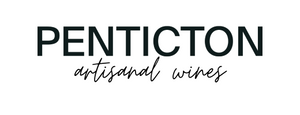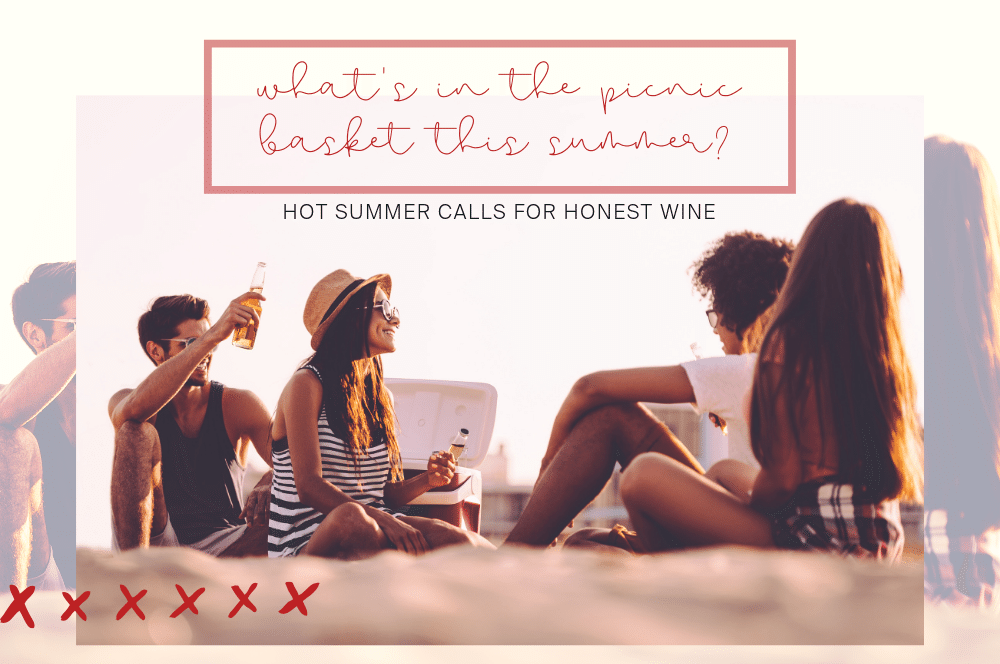Hot summers call for honest wine
As summer arrives in Paris, the Parisians take any opportunity to escape the city heat and flock to the refreshing coast of Normandy. A short train journey out of the capital and you can soon be relaxing and imbibing “sur la plage”. The picnic basket is prepped, but what bottle should we bring? Well, hot summers call for honest wine, so why not try something a little more Natural.
If you are not previously familiar with the culture of ‘Vin Nature’, this article aims to go beyond the glass and dispel some of the myths surrounding Bio, Biodynamic and Natural Wine. If you are already a Natural wine fanatic, you will discover some of the emerging winemakers making their way onto the scene. They are working to create conscientious wines, which sing the song of their terroir.
So, what is Natural wine?
The term itself is quite difficult to pinpoint. “Natural” is an overarching term which encapsulates a movement of winemakers creating authentic wines with as little impact on the natural environment as possible. This means without the use of any chemicals during the cultivation and vinification of the grapes: no herbicides, pesticides, fungicides, chemical fertilisers. They also do not add any modified yeasts, and allow a natural fermentation to occur, caused by the indigenous yeasts already on the grapes. They are sensitive to climate change and work to limit pollution by hand harvesting and limiting machinery, using gravity to transport the grapes into the vats or barrels. Equally, they encourage the natural ecosystem in and around the vines to diversify and enrich the soils.
S02 (Sulphites), is a hot topic in the wine world. S02 is a preservative frequently added to wine so as to permit long-term ageing and maximise the shelf-life of a bottle. There is naturally occurring S02 all around us including on the surface of a grape. Therefore, Natural wine makers aim to add only very small amounts of artificial S02, if any at all. They instead rely on acquired skills and savoir-faire to protect their wine from oxygenation. As a result of very little artificial intervention, Natural wine can offer new and exciting flavour profiles. Fresh and fruity aromas are not stifled by chemicals, but rather allowed to serenade the glass.
Let’s be dynamic.
Natural wine restaurant - Naturellement in Paris, France. Orange wine bottles (aka White wine made with Red wine technique) are placed upside down to let the lees (yeasts) settled at the caps.
The Natural wine method is a philosophy to be followed, rather than a hard and fast set of rules. As of yet, there is no controlled certification or governing board to administer an official “Natural” stamp to winemakers. However, there are EU regulations for “Bio” and “Biodynamic” wines. If a bottle is labelled Bio (organic), it simply means that grapes were grown organically, like any other fruit or vegetable. It does not, however, police the use of chemicals during the winemaking process, and a Bio wine can still contain large quantities of S02. Biodynamic goes a step further towards being “completely” Natural. In addition to growing the grapes organically, winemakers also vinify naturally. Winemakers work very closely with natural cycles to boost the surrounding ecosystem in and around the vines. The ‘dynamic’ part of Biodynamic is slightly more open to interpretation. Winemakers who follow this philosophy take into consideration the flow of energy at every stage from vine to bottle. They “dynamise” and aerate the soils by ploughing between the vines, to encourage a superior absorption of the terroir as the roots plunge deep below the surface. Crystals, water vortexes and the lunar calendar can all be used to dictate when to prune, pick, and bottle. Some people may be skeptical of this side of biodynamics. However, even discounting the holistic aspect, the end product is eco-friendly and tasty.
The Paris Natural Scene.
What some claim to be a fad of funky labels, others see as a conscientious movement towards low-impact consumption, and the elimination of chemical products in agriculture. It is arguably a combination of the two. The Natural wine movement is undeniably growing in popularity, as evidenced by the ever growing number of Natural and artisanal wines shops popping up in the capital. Paris has always been a hub for finding some of the best wines in France, and this is equally true of the up-and-coming Natural scene. However, when the Parisians leave on their summer holidays, the wine goes with them. What better time to explore some new and innovative winemakers than whilst lying on a beach, with a glass in hand.
Go Big. Go Burgundy.
Burgundy wines can be known as the most expensive wines in the world, however if you look to the artisanal family domaines, you can still find some affordable gems.
Domaine Moreau-Naudet is run by female winemaker Virginie Moreau, who brings a fresh energy to her 20 hectares of Chablis. Virginie cultivates without chemicals and uses very low levels of S02, working every year to reduce this even further. In the heat of the summer, the palette calls for thirst-quenching bright wines, and her 100% Chardonnay Moreau-Naudet Chablis 2017 does just that. Lying on a bed of the coveted Kimmeridgian Limestone, her wines are structured with a deep and crisp minerality, enveloped by fresh white peach, pear, and citrus. The flecks of salinity left on the lips after a quick dip in the Atlantic echo within this wine, paring beautifully with seared scallops in a white truffle butter sauce.
Domaine Rougeot has 6 generations of savoir-faire to its name. Making wine across 7 appellations, their 13 hectares are located in and around Meursault in the Cote de Beaune region of Burgundy. Since 2012, the domain has embraced organic techniques and is on their way to being certified Biodynamic. Every year they experiment with lowering their levels of S02, and have now produced several “No added S02” cuvées to their repertoire. After pressing, they transfer the grape juice directly to ferment in barrels with as little intervention as possible. They bottle an honest reflection of their terroir.
Discover Rougeot’s Meursault Sous la Velle "Sans sulfite ajouté" 2017. Their 100% chardonnay is a velvety expression of fresh white fruits, magnolia, and almond, perfect for a bbq of freshly caught grilled lobster and charred lime.
Reds are for summer too and Rougeot has some delightful examples. Their Bourgogne 100% Pinot Noir Lameroses "Sans sulfite ajouté" 2016 is both light bodied and refreshing, whilst giving a sultry depth to the palette. Hints of black cherry, white pepper and nutmeg would compliment a spicy sichuan tuna tartar.
The hamper is packed, the bottles are chilled, beach ready and naturally perfect for this summer!
About our contributor - Harriett Gifford is a freelance English writer based in Paris, France. A classicist, graduate of Le Cordon Bleu and a lover of natural wine.






